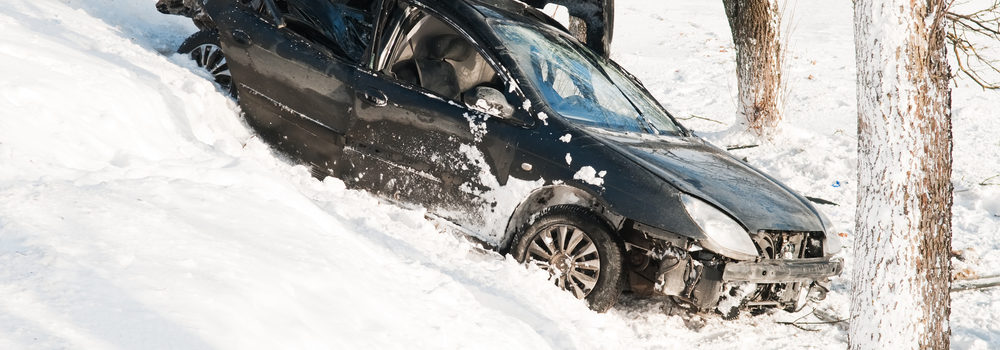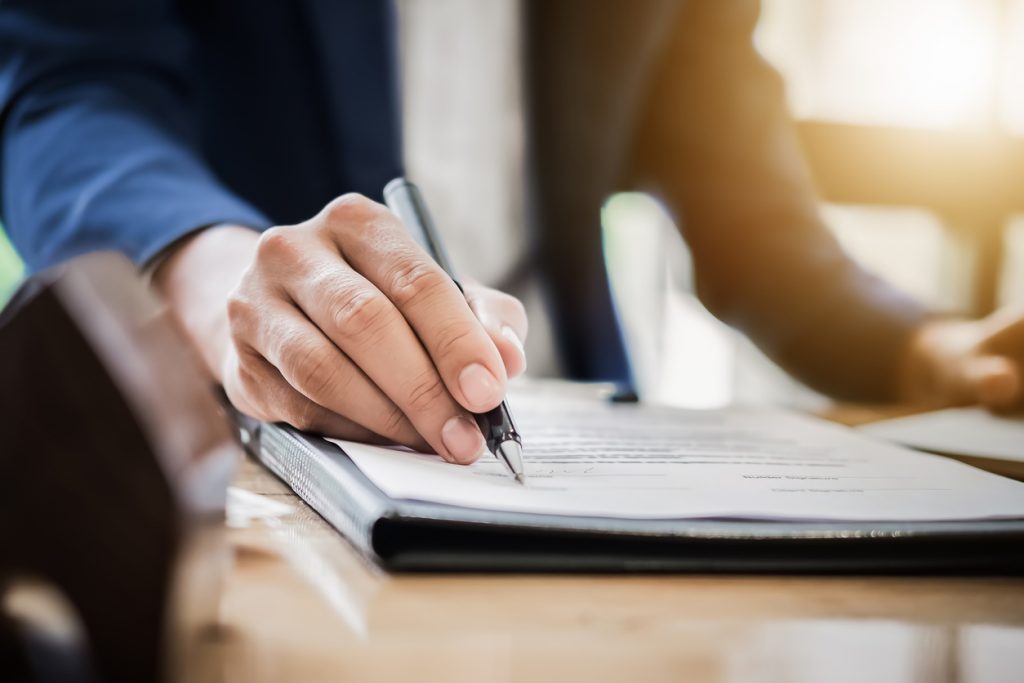I’ve Been in a Car Accident: What Should I Do?
The moments following a car accident can be a blur of chaos and confusion. Adrenaline is pumping, emotions are running high, and you may be unsure of what to do next. Don’t panic – take a deep breath and follow these steps to ensure your safety and protect your legal rights:
What to Do After a Car Accident
Get yourself to safety and check for injuries.
In the immediate aftermath of an accident, your first priority should be your safety and the safety of others. If possible, move your car to the side of the road to avoid further collisions. Once you’re out of harm’s way, take a moment to assess your injuries and those of your passengers. If you or anyone else is seriously injured, call 911 immediately.
Even if you don’t feel any pain initially, it’s important to stay calm and alert. Some injuries, such as whiplash, may not show up right away. It’s a good idea to get checked out by a doctor or visit the emergency room if you have any concerns about your health.
While you’re checking for injuries, take a moment to gather your thoughts. Are you feeling shaky, confused, or disoriented? These are all common symptoms of shock. If you’re feeling overwhelmed, try to take some deep breaths and focus on staying calm. It’s also helpful to talk to someone about what happened, whether it’s a friend, family member, or the police.
Once you’ve ensured everyone’s safety and checked for injuries, you can start to gather information about the accident. Take photos of the damage, exchange insurance information with the other drivers, and get the names and contact information of any witnesses. If possible, write down a brief description of what happened, including the time and location of the accident. This information will be valuable when you file an insurance claim or report the accident to the police.
It’s important to stay calm and collected after a car accident, even if you’re feeling shaken up. By following these steps, you can ensure your safety, protect your rights, and take the first steps towards getting your life back on track.
“I’ve Been in a Car Accident! What Should I Do?”
After the shock and confusion of a car accident, it’s essential to take immediate action to protect yourself and your legal rights. Here’s a comprehensive guide to help you navigate the aftermath of an accident:
Call the Police
In the aftermath of an accident, adrenaline can be pumping, and it may be challenging to think clearly. However, it’s crucial to call the police as soon as possible. Reporting the accident creates an official record, which is valuable for insurance claims and potential legal proceedings. Moreover, the police can direct traffic, prevent further accidents, and provide medical assistance if necessary.
Exchange Information
Once the police arrive, they will gather information about the accident, including the names and contact details of all involved parties, insurance information, and a description of the vehicles involved. It’s important to provide accurate information and obtain the same from other drivers. This information will be essential for insurance claims and future legal actions if necessary.
Document the Scene
If possible, take pictures of the accident scene, including the damage to the vehicles and any visible injuries. These photographs will serve as valuable evidence and help recreate the events of the accident, especially if there are disputes about fault.
Seek Medical Attention
Even if you don’t feel injured initially, it’s wise to seek medical attention as soon as possible after an accident. Some injuries may not manifest themselves immediately, and prompt medical care can help prevent future complications.
Contact Your Insurance Company
As soon as you can, notify your insurance company about the accident. They will guide you through the claims process and help you file a report. It’s essential to provide them with all the details of the accident, including the police report number.
Get Legal Advice
In some cases, it may be beneficial to seek legal advice, especially if there are disputes about fault or the extent of injuries. A lawyer can help you understand your rights and represent you in legal proceedings if necessary.
Don’t Admit Fault
It’s important to avoid admitting fault at the scene of the accident or in any subsequent conversations. Even if you believe you may be partially responsible, it’s best to let the insurance companies and legal authorities determine liability.
I’ve Been in a Car Accident: What Should I Do?
Accidents can be stressful and confusing. When you’re in one, it’s easy to become disoriented, so it’s important to stay calm and collected to make the right decisions. Here’s what you should do after a car accident:
Exchange Information
Gather as much information as possible about the other driver and their vehicle, including their name, contact information, insurance information, and license plate number. If they’re unable to provide this information, make sure to get the names and contact information of any witnesses. This information will be invaluable when filing insurance claims or pursuing legal action later on.
Call the Police
If there’s any significant damage, injuries, or if you suspect the other driver is intoxicated, call the police immediately. They will create an accident report that will be essential for your insurance claim, and they can also issue citations for any violations that may have caused the accident.
Take Photos
If you’re able, take pictures of the accident scene, including the damage to both vehicles and any visible injuries. These can be very helpful in documenting the events of the accident and providing evidence to your insurance company or the police.
Seek Medical Attention
Even if you think you’re not injured, it’s always best to get checked out by a doctor. Some injuries, such as whiplash, may not be immediately apparent, and it’s important to get the treatment you need as soon as possible.
Report the Accident to Your Insurance Company
As soon as possible, report the accident to your insurance company. They will guide you through the process of filing a claim and help you get the repairs or compensation you’re entitled to.
Hire an Attorney
If you’ve been seriously injured or if you’re having trouble dealing with the other driver’s insurance company, you may want to consider hiring an attorney. They can help you protect your rights and get you the compensation you deserve.
I’ve Been in a Car Accident – What Should I Do?
Being involved in a car accident can be a harrowing experience. In the aftermath of the collision, it’s imperative to stay calm, prioritize safety, and take the necessary steps to protect your well-being and rights. Let’s delve into what you should do if you find yourself in such an unfortunate situation.
Take Photos and Videos
Documenting the accident scene thoroughly is crucial. Take photos and videos of the damage to both vehicles, including any visible injuries you or other parties may have sustained. This visual evidence will provide valuable support for your insurance claim and potential legal proceedings.
Exchange Information
After ensuring everyone’s safety, exchange essential information with the other driver(s) involved. This should include names, contact details, insurance company and policy numbers, and license plate numbers. Obtaining witness statements from bystanders who may have witnessed the accident can also strengthen your case.
Report the Accident
Reporting the accident to the police is a legal requirement in most cases. The police report will document the details of the collision and can serve as additional evidence if needed. It’s crucial to obtain a copy of the report for your records.
Seek Medical Attention
Even if you don’t feel immediate pain, it’s essential to seek medical attention promptly. Adrenaline can mask hidden injuries that may surface later. A medical examination can diagnose any undisclosed injuries and ensure you receive appropriate treatment.
Contact Your Insurance Company
Inform your insurance company about the accident as soon as possible. They will guide you through the claims process and provide necessary support. Cooperate with the insurance adjuster and provide them with all the documentation you have gathered, including photos, videos, and medical records.
Hire an Attorney
Consider consulting with an experienced attorney if you are seriously injured or the other driver is disputing fault. An attorney can represent your interests, ensure your rights are protected, and help you navigate the legal complexities of the situation.
Follow Up
Follow up regularly with your insurance company and attorney to monitor the progress of your claim. Keep meticulous records of all communication and expenses related to the accident. Remember, staying organized and proactive will help you maximize your compensation and ensure a smooth resolution.
I’ve Been in a Car Accident: What Should I Do?
Being involved in a car accident can be a traumatic experience. In the aftermath of a collision, it’s crucial to stay calm and take the necessary steps to protect your health and well-being. Here’s a comprehensive guide to help you navigate the immediate aftermath of a car accident and ensure your recovery.
Get a Medical Checkup
Even if you don’t feel injured at the scene of the accident, it’s essential to get a medical checkup as soon as possible. Adrenaline can mask underlying injuries, and it’s better to err on the side of caution. A doctor can thoroughly examine you and identify any hidden injuries that may require treatment.
Contact the Police
Filing a police report is crucial in establishing an official record of the accident. The police report will document the details of the incident, including the location, time, and parties involved. This information is essential for insurance companies and legal proceedings.
Exchange Information
Exchange insurance information with the other driver(s) involved in the accident. This includes your name, address, phone number, insurance carrier, and policy number. It’s also helpful to take down the make, model, and license plate numbers of the vehicles involved.
Take Photos
If possible, take photos of the accident scene. This documentation can provide valuable evidence of the damage caused and the circumstances of the collision. Make sure to capture images of the vehicles, any visible injuries, and the surrounding area.
Report the Accident to Your Insurance Company
Promptly report the accident to your insurance company. They will investigate the incident and determine the coverage available to you. It’s important to provide them with all the necessary information, including the details of the accident, police report number, and any injuries sustained.
Seek Legal Advice
If you sustained significant injuries or have concerns about the other driver’s liability, consider seeking legal advice. An attorney can help you navigate the complexities of insurance claims, personal injury lawsuits, and other legal matters related to the accident.
Take Care of Yourself
After a car accident, it’s important to take care of both your physical and mental health. Follow your doctor’s orders, attend physical therapy appointments, and get plenty of rest. Don’t hesitate to seek support from family, friends, or a therapist if you’re struggling with the emotional aftermath of the accident.
I’ve Been in a Car Accident: What Should I Do?
Navigating the aftermath of a car accident can be a bewildering experience, especially if you’re injured or disoriented. Amidst the chaos, it’s crucial to remain calm and take the necessary steps to protect yourself and your well-being. Here’s a comprehensive guide to help you through the immediate aftermath of a car accident:
1. Ensure Safety
First and foremost, prioritize your safety and the safety of others involved in the accident. Pull over to the side of the road if possible, and if you or anyone else is injured, call 911 immediately. If you’re able to move around, check to see if anyone needs assistance or medical attention.
2. Exchange Information
Once the situation is stabilized, exchange information with the other driver(s) involved in the accident. This includes names, contact information, insurance details, and license plate numbers. Take photos of the damage to both vehicles and the surrounding area, if possible.
3. Contact the Police
Depending on the severity of the accident and your location, you may need to file a police report. This is particularly important if there are injuries, extensive damage, or a dispute over who is at fault. The police report will provide an official record of the accident and can be helpful in insurance claims and legal proceedings.
4. Seek Medical Attention
Even if you don’t feel any immediate pain or discomfort, it’s essential to seek medical attention as soon as possible. Some injuries, such as concussions or internal bleeding, may not manifest immediately. A doctor can assess your condition, provide treatment, and document any injuries for insurance purposes.
5. Contact Your Insurance Company
Report the accident and file a claim with your insurance company as soon as possible. Inform them of the details of the accident, provide the information you’ve gathered, and follow their instructions. They will guide you through the claims process and help you to obtain compensation for damages.
6. Document the Accident
Thoroughly document the accident by taking notes, keeping copies of all relevant documents (e.g., the police report, medical records, insurance information), and saving any photos you’ve taken. This will help you to provide a comprehensive account of the accident and support your claim for damages. Don’t hesitate to contact a lawyer if you have any questions or concerns about the documentation process or your legal rights.
I’ve Been in a Car Accident: What Should I Do?
Being involved in a car accident can be a harrowing experience, leaving you feeling shaken and overwhelmed. Amidst the chaos, it’s crucial to take the necessary steps to protect your well-being and ensure your rights are upheld. Here’s a comprehensive guide to help you navigate the aftermath of a car accident:
1. Ensure Safety
Your safety should be your top priority. If possible, pull over to a safe location. Check yourself and your passengers for injuries. If anyone is hurt, call 911 immediately.
2. Exchange Information
Once the immediate danger has passed, exchange information with the other driver(s) involved. This includes names, contact details, insurance information, and license numbers.
3. Document the Scene
Take photos of the accident scene, including the damage to all vehicles involved and any visible injuries. Note the location, time, and weather conditions.
4. Gather Witness Statements
If there were any witnesses to the accident, get their names and contact information. Their accounts can be valuable later on.
5. Report the Accident
Most states require that you report any accident involving injuries or property damage to the police. File a police report as soon as possible.
6. Seek Medical Attention
Even if you don’t feel injured at the scene, it’s essential to seek medical attention as soon as possible. Some injuries may not manifest themselves immediately.
7. Keep a Record of Everything
Document all expenses, medical bills, communication with insurance companies, and any other expenses related to the accident. Keep a detailed record of your pain, suffering, and missed work days. This will be invaluable when seeking compensation later on.
8. Contact Your Insurance Company
Notify your insurance company about the accident as soon as possible. They will guide you through the claims process and help you determine your coverage options.
9. Consider Legal Representation
If you have sustained serious injuries or believe that the other driver was at fault, you may want to consider consulting with an attorney who specializes in car accident cases.
Remember, the aftermath of a car accident can be stressful and confusing. By following these steps, you can protect your rights, ensure your well-being, and navigate the legal process smoothly.
I’ve Been in a Car Accident. What Should I Do?
After a car accident, it’s natural to feel shaken and confused. In the aftermath of a collision, it’s crucial to remain calm and take the necessary steps to protect your health and legal rights. Here’s a comprehensive guide on what to do after a car accident.
Check for Injuries
First and foremost, check for injuries. Assess yourself and your passengers for any signs of pain or discomfort. If you suspect serious injuries, call 911 immediately. Even if you don’t feel injured initially, it’s possible to develop delayed symptoms. Seek medical attention as soon as possible.
Move to a Safe Location
If possible, move your vehicle to a safe location off the road. This will prevent further accidents and allow other vehicles to pass by. If you’re unable to move your vehicle, stay inside with your seatbelt fastened.
Exchange Information
Once you’re in a safe location, exchange information with the other driver(s) involved. This includes your names, addresses, phone numbers, insurance information, and license numbers. Take photos of the damage to both vehicles and the surrounding area if possible.
Report the Accident
In most states, you’re required to report any accident involving injuries or property damage to the police. They will create an accident report that can be helpful in the insurance claims process.
Consider Hiring a Lawyer
If the other driver is at fault and you have serious injuries, you may need legal assistance. An attorney can help you gather evidence, negotiate with the insurance companies, and represent you in court if necessary. Do your research and choose an attorney with experience in personal injury cases.
Document Everything
Keep a record of everything related to the accident, including medical bills, repair estimates, and correspondence with insurance companies. Take notes about the accident, including the date, time, location, and any witnesses who may have seen what happened. This documentation will be invaluable in the event of a dispute.
Be Prepared to Negotiate
The insurance companies will likely try to settle your claim for as little money as possible. Be prepared to negotiate and don’t be afraid to stand up for your rights. If you’re not satisfied with the settlement offer, you can consider hiring an attorney to help you negotiate a fair settlement.
Take Care of Yourself
After a car accident, it’s important to take care of your physical and mental health. Rest, eat healthy foods, and avoid alcohol and drugs. If you’re struggling with anxiety or other emotional issues related to the accident, don’t hesitate to seek professional help.





Leave a Reply